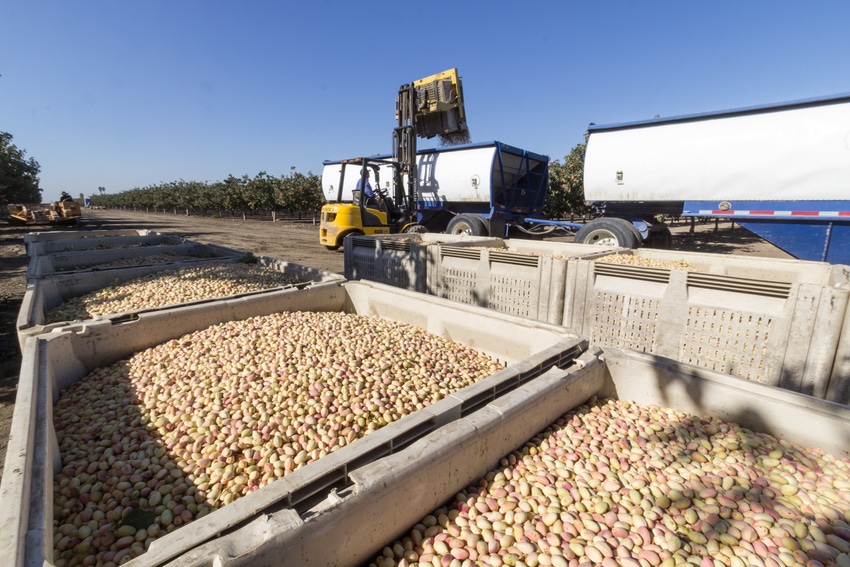
When truck and trailer loads of pistachio nuts disappeared after leaving Tulare County processing plants two years ago, law enforcement officers found themselves in a unique situation.
Detective Kenny Jones with the county sheriff’s Ag Crimes Task Force said the thefts, which appeared at first to be honest transactions, represented a new type of high value, sophisticated agricultural crime.
“We had to be aggressive in investigating and preventing these types of theft or they would continue,” said Jones.
The high value of the nuts and relative ease of the thefts gave them a huge incentive to solve the crimes.
This year, as processors geared up for the 2017 harvest, Jones said Tulare County has not seen more thefts. Tulare County Sheriff Mike Boudreaux said their past experiences with nut thefts have made the agricultural crimes unit the leading expert in nut theft in the state. Other agencies looked to Tulare County law enforcement when investigating similar thefts.
Jones said agriculture’s typical business model, where a handshake seals a deal, led organized crime syndicates to believe the heists would be easy.
When investigations began, they found truck drivers were asked for little information or identification when picking up loads from processors. This has changed, he said, as processors now have strict policies in place to dealing with all incoming truck drivers.
What happened in the past, Jones explained, was a legitimate purchase was made. A buyer might post on an internet load board that they needed transportation. The crime syndicate could use the information to send a truck to pick up the load. Once on the road, whether the driver was in on the theft or not, he and the load were diverted to another location where thieves then took possession.
Jones said at least one load of pistachios was tracked to Southern California where it was stored in warehouses before the sale on the black market.
“We worked with management and security at the processors, and advised them to look carefully at bills of lading, e-mail addresses, and phone numbers,” Jones said.
Typically the addresses would look sketchy and the phone number was not traceable.
When the first theft occurred, Jones said they were five or six days behind with the initial investigation and had very little information to trace the stolen nuts. Realizing they were dealing with a more sophisticated type of criminal Jones said unit detectives underwent specialized training with insurance investigators and Los Angeles police detectives. The crimes spurred desire to find a way to trace and identify stolen nuts.
Jones said this led the county sheriff’s department to use “smartwater,” a forensic liquid that can link stolen property to rightful owners.
Roger Isom, president of Western Agricultural Processors Association (WAPA), praised Tulare County leadership to counter large-scale nut thefts.
“They jumped on this and really became educated about these crimes,” Isom said.
Since the initial thefts, he said there have been no repeats, but several attempts were thwarted.
WAPA also took a lead role in facilitating communication between law enforcement agencies, processors, and trucking companies to halt the thefts. Isom said WAPA hosted an emergency summit meeting to involve law enforcement agencies, processors, and trucking companies to help solve the problem.
The organization also developed procedures for screening incoming truck drivers and held training sessions.
Isom said WAPA also became a member of CargoNet, the cargo theft prevention and recovery network, plus the Southwest Transportation Coalition, to become informed about drivers who may work in criminal theft rings.
“This was a really huge deal for us with 34 loads statewide stolen in one year,” Isom said. “We were not prepared for the scale and sophistication of these crimes. Now we are.”
About the Author(s)
You May Also Like




